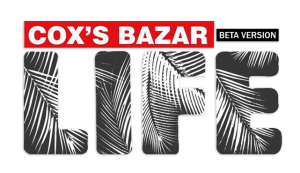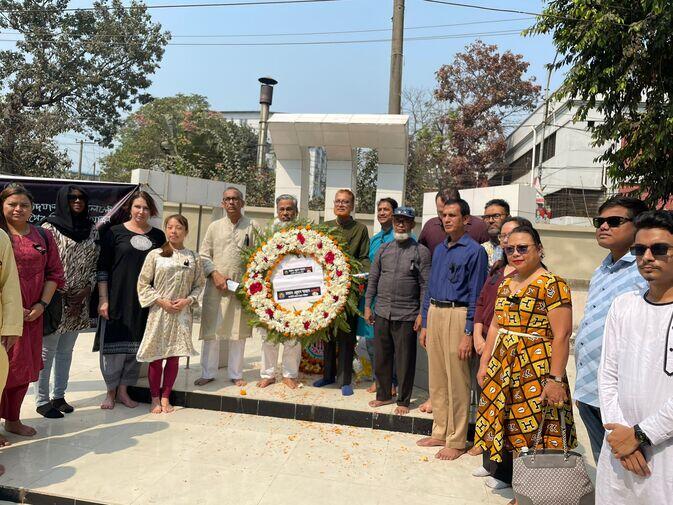Foreign nationals in Cox’s Bazar observed International Mother Language Day by reciting poetry in their native languages and sharing their thoughts. The event’s uniqueness was further enriched as participants translated their words into English for the audience.
Titled “Ekusher Droho in the Sesquicentennial,” this distinctive celebration was organized by the Cox’s Bazar Government High School (CGBHS) Alumni Association as part of the school’s 150th anniversary programs.
Held at the school’s Shaheed Minar premises at 10 AM, the event welcomed citizens from Japan, Colombia, the Philippines, Kenya, Nigeria, Kazakhstan, Syria, and other countries, many of whom are associated with international organizations working in Cox’s Bazar.
Expressions from Global Voices
Japanese national Machiko Fukumara expressed her joy at being able to speak in her mother tongue, saying, “Seeing this school reminds me of my own country, my childhood, and my language.” She also mentioned that this was her first time participating in an International Mother Language Day event.
Nigerian participant Hawa Hassan appreciated the initiative, saying, “It feels wonderful to be here, surrounded by people who speak so many different languages.”
Helen, from the Philippines, who has lived in Bangladesh for several years, shared her thoughts on linguistic freedom: “The ability to speak freely in one’s language is a profound joy.”
Colombian citizen Isabel Suárez reminisced about her childhood upon seeing the school students, saying, “It takes me back to my school days.”
A Symbol of Diversity and Unity
M.M. Sirajul Islam, the convener of the CGBHS Alumni Association, stated that the event aimed to showcase linguistic diversity and unity while also highlighting the global significance of mother languages. He emphasized that the presence of foreign nationals helped extend the message of linguistic pride beyond Bangladesh’s borders.
Veteran poet and retired banker Zainal Abedin Mukul, also an alumnus, reflected on the historical significance of the school’s Shaheed Minar. He noted that it was the first Shaheed Minar in Cox’s Bazar district and recalled the contributions of former students and teachers to the 1952 Language Movement. Among them was Khaled Mosharraf, a key figure in Bangladesh’s Liberation War, who led the school’s students in protests during the movement.
Sheikh Ashikuzzaman, an organizer of the alumni association, highlighted Cox’s Bazar’s growing international prominence. “Due to various factors, Cox’s Bazar holds global importance, with over a thousand foreign nationals working here—something no other district in Bangladesh has. Celebrating International Mother Language Day with them underscores the city’s global significance,” he said.
Another organizer, Yasir Arafat, mentioned that this event was part of a year-long celebration marking the school’s 150th anniversary. “We plan to commemorate every significant occasion until December,” he added.
With the fusion of cultural voices and historical reflections, this event at Cox’s Bazar Government High School stood as a testament to the power of language in bridging communities and fostering global solidarity.
By Abdur Rashid Manik
Photo: Abdur Rashid Manik










